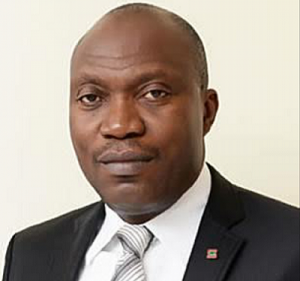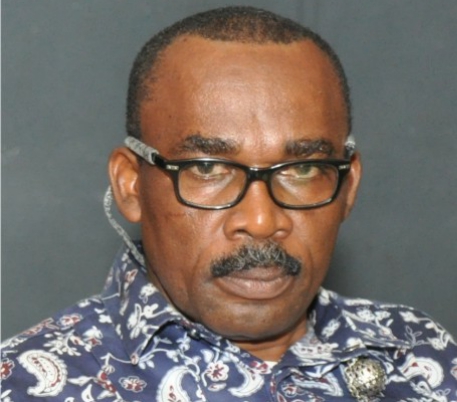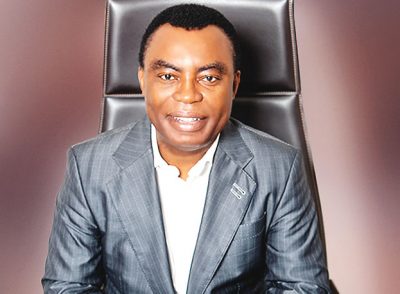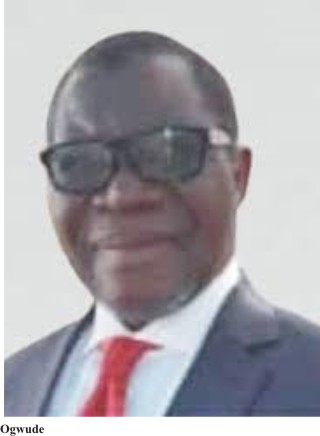Nigeria To Overcome Recession In 3 Months – Johnson Chukwu

Following the introduction of cashless policy by the Central Bank of Nigeria (CBN), MMS Plus reached Mr. Johnson Chukwu, the Managing Director of Cowry Assets Management Limited to give an expert’s analysis of the policy’s prospects and challenges, as well as other financial issues in the country.
Exceprts:
Looking at the nation’s business environment and economy, what is your perspective on the new Cashless policy of the Central Bank of Nigeria (CBN) which begins on April 1st, 2017?
The challenge of the cashless policy is that there are still States in the nation that do not have effective network coverage particularly for data services. So, in such locations it would be difficult to do internet payment use mobile banking systems.
However, I think we should welcome the cashless policy because when it kicks off, it would compel telecommunication companies to see the loopholes in their services and take steps to improve their services especially in rural areas. Most of the telecommunication companies are yet to cover the entire country and this would enable them broaden their coverage despite the obvious challenges of power, logistics and issues with several States and Local Governments.
There are several benefits that would be derived from the implementation of the cashless policy nationwide. One is that it would reduce the rate of criminal activities like kidnapping for ransom which requires exchange of money. It would be difficult for the victims to withdraw the cash and also difficult for the kidnappers to use a bank account. The issues of armed robbery would reduce and also the corruption in the country. Some of the benefits outweigh the disadvantages.
This policy should have kicked off about three years ago but there has been a delay. Since that time, the nation has witnessed better service delivery which should support the cashless policy in the country. I support the policy but I also insist that where there are service gaps with respect to the telecommunication service providers, then the CBN should grant waivers to such localities until there are better services in those places.
There are still challenges with the use of POS and ATM machines in major cities around the nation during the weekends. Is the nation ready technologically for this cashless policy?
There may never a right time when all the factors would be available to support the cashless policy. If we have to achieve this, we have to strive even when all the conditions are not available. It is only in utopian situations that it becomes necessary for all the factors to be available. If we want to wait for a time when the network conditions of telecommunication companies would be efficient across the country and probably there would be free wifi, then we would have to wait for donkey years and the nation would be foregoing the benefits of the cashless policy.
This policy would encourage more people to open accounts, enhance the use of electronic and online modes of payments.
The fact that the policy attracts extra charges on withdrawals and depsits has led many bank managers to express dissatisfaction with the policy. Would this lead people to begin to save their monies in their houses?
I don’t think so. The charges would rather make people adopt the cashless methods of transactions because the charges are for those who are making withdrawals or deposits above a certain amount. The charges are there to prevent people from continuing cash transactions.
A lot of people have gone beyond keeping their monies at home because they are aware of the danger. Having set these disincentives on cash transactions, I would admonish the Central Bank of Nigeria (CBN) to reduce the charges per million on current accounts from N1000 per million to N500 per million. We also need to minimize the cost of doing transactions in the banking system by reducing the maintenance fees and canceling the stamp duty on deposits into customers’ accounts. Such payment is for custodian; it is not a payment that should attract service charge or stamp duty.
Deposit slips shouldn’t be considered as receipts because receipts ought to be evidence of payment for services or goods. It is unfair to charge Nigerians for deposits into one’s account and I expect the Consumer Rights groups to be fighting to change this.
In recent times, several investors have pulled out of the capital market and the money market. How would their departure affect the financial sector and the nation’s economy at large?
I believe you are referring to foreign investors. Several factors led to the pull out of many investors. One is that we have had a long period of instability in the FX market, another factor is that our forex market lost liquidity and foreign investors would rather stay in a market with some level of stability and liquidity. For a long time there was no clarity in the economic policy of the nation until recently when the economic regulator was announced. We are also seeing an increase in Western countries especially the US where the Monetary rate has been increased from 0.5% to 1%. These factors led many foreign investors to sell their stocks and exit the country.
Despite the efforts of the Nigerian government in ensuring that export thrives to pull the nation out of the economic recession nothing much has been achieved. Is this as a result of the forex challenges and other problems facing the nation’s financial sector?
The major problem Nigeria has with export is that we don’t have an industrial base. A lot of our exports leave without added value. There is no beautification nor development on our exports. We just source materials at their primary levels, export them and import the finished products.
An industrial base is required to get the financial benefits from exports. An industrial base would thrive in an environment where there is sufficient power supply, efficient transport infrastructure, the right supply of manpower and the development of trade facilitation tools like the seaports, the turn around time for goods at the ports, etc all contribute to an efficient industrial base. Until we have a good industrial base, we may not get the ideal revenue from export to stabilize the nation’s economy.
Recently, the Minister of Finance, Mrs. Kemi Adeosun said that the powers of the Central Bank of Nigeria should be curbed. How would you react to that?
The Minister of finance, Mrs. Kemi Adeosun has not elaborated on which powers of the CBN she wants to be curbed. Is it powers as it relates to the monetary policies or powers on the supervision of the financial system? Or is she stating that the two powers shouldn’t reside in CBN? There is a need for clarity on what the Minister wants before we can critique her opinion and compare them with what is obtainable in modern global best practices.
However, in order to make CBN a better agency, I think the President should constitute the Board of Directors at the CBN. This would ensure that there would be more robust discussions that would lead to policies at the bank. Today, there is no board and no matter how brilliant an individual is, he or she cannot produce the benefits of collective wisdom. The Act that establishes CBN requires the bank to have a Board of Directors and this has a purpose. So, the best way to start reforms at CBN would be to constitute that board of directors.
How would appraise the efforts of the CBN to manage the forex crisis, inflation and other financial challenges in recent times? Some people have suggested a change of the naira.
The colour of the currency has nothing to do with the value of the currency. The value of a currency is determined by the nation’s ability to earn foreign exchange vis-a-vis the volume of consumption of foreign exchange in the country. If a nation has a foreign revenue stream that outweighs its consumption then the nation has a strong currency.
The structure of the nation’s economy, businesses, actions of the regulatory bodies like CBN, etc., determines the strength of a nation’s currency. Although, the change of the currency could help regulate the volume of the currency in the nation, it wouldn’t solve the problems facing the country and it shouldn’t be an option to consider.
What short term, medium and long term solutions would you proffer to solve the nation’s economic woes?
The shortest solution is to borrow. The Federal Government has already borrowed $1billion from the Euro Bond market and it is planning to borrow another $500million and another $1billion from the World Bank. The government should also be able to access balance of $600 million out of the $1billion loan granted to the country through the African Development Bank. So, with these monies, the CBN would have a war chest to sustain the nation’s economy in the short term. In the medium term, the government would have to sustain the peace in the Niger Delta to ensure that oil production stays between 2 million and 2.2million barrels per day. Fortunately, the crude oil prices have increased to about $50 per barrel.
However, the long term solutions would be to enhance exports and the generation of foreign exchange through the development of an efficient industrial base.
Looking at the nation’s economy, how would you appraise the first quarter of 2017 and what are your projections for the second quarter and the rest of the year?
In terms of the nation’s economy, I think Nigeria would come out of the recession in the second quarter of the year. As it relates to specific sectors, we are seeing an improvement in forex supply and this would enhance several other sectors of the economy if that is sustainable.
I believe that we should see a recovery of the maufacturing sector if the forex policy is sustained. Agricultural growth should also be expected because of the level of emphasis the government has given it. However, the financial industries particularly the banking industry would lag behind unless drastic measures are taken to correct the high incidencies of non-performing loans. The maritime sector would also witness a boom as a result of the CBN’s efforts to provide forex and the increase in global oil prices. Imports are going to increase and the activities at the nation’s seaports would also increase. I think 2017 would be better that 2016 with regards to the growth and stability of the nation’s economy.
By Kenneth Jukpor







